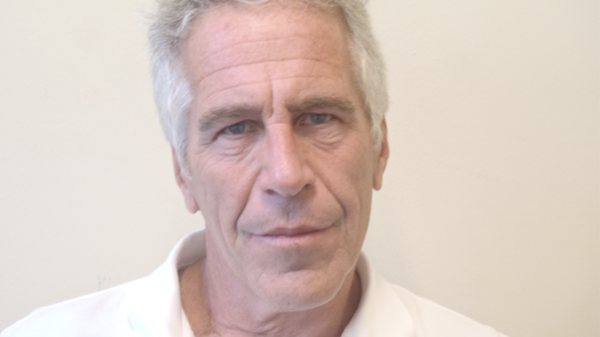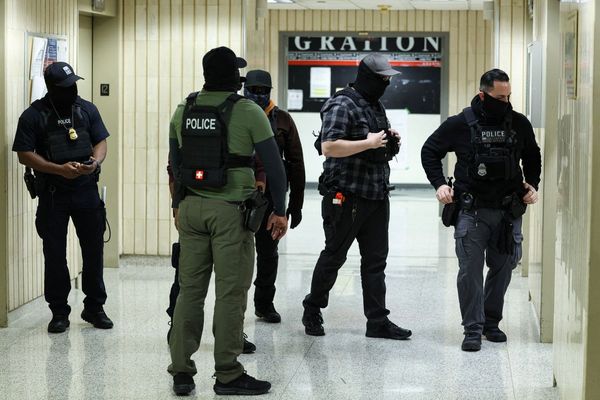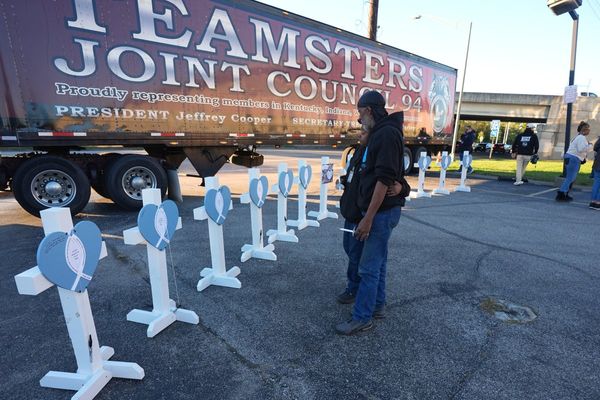
National guard troops were seen patrolling in Memphis for the first time on Friday, as part of Donald Trump’s controversial federal taskforce, amid fierce legal challenges as he was blocked from sending troops to Chicago and a court ruling is awaited in Portland, Oregon.
At least nine national guard troops began their Tennessee patrol at the Bass Pro Shops, an outdoor gear chain, located at the Pyramid, a commercial landmark in Memphis. They were being escorted by a Memphis police officer and posed for photos with visitors who were standing outside.
It was unclear how many federalized troops were on the ground or were expected to arrive later.
During an NAACP Memphis forum on Wednesday, Memphis’s police chief, Cerelyn “CJ” Davis, had said she hoped guard personnel would help direct traffic and have a presence in “retail corridors”, but not be used to operate checkpoints or anything similar – the kind of situation Washington DC experienced.
Memphis authorities did not request federal troops but Tennessee’s Republican governor, Bill Lee, supports the move by the White House.
Meanwhile, on the west coast, a federal appeals court heard arguments on whether Donald Trump had authority to take control of 200 Oregon national guard troops. The president had planned to deploy them in Portland, where protesters have shown up wearing frog and chicken costumes at the mostly small, nightly demonstrations outside an Ice building.
A three-judge panel in San Francisco on Thursday appeared likely to set aside the ruling blocking Trump’s Portland deployment, which would clear the way for hundreds of soldiers to enter that city.
A judge on Sunday granted a temporary restraining order blocking the move. Trump had mobilized California troops for Portland just hours after the judge first blocked him from using Oregon’s guard.
Stacy Chaffin, an Oregon assistant attorney general, echoed the language of the lower court judge who blocked Trump’s deployment, saying the president’s descriptions of Portland as riven by violence were “untethered from reality”.
The judges questioned whether they should only consider the current circumstances or take into account more active protests earlier this year that temporarily shut down Ice’s Portland headquarters.
The US circuit udge Ryan Nelson, a Trump appointee, said courts should not engage in a “day-by-day” review of whether troops were needed at any given time.
Two dozen other states with a Democratic attorney general or governor signed a court filing in support of the legal challenge by California and Oregon. Twenty others, led by Iowa, backed the Trump administration.
The national guard is part of the military and can be deployed overseas or domestically. In the US, the guard is usually directed by governors and responds to events such as natural disasters. Under US law, national guard and other military personnel are not typically permitted to engage in civilian law enforcement.
While a US president can deploy the guard under certain authorities, Trump is testing the limits of those powers by sending troops to cities controlled by his political opponents.
Trump on Thursday again suggested he intended to expand his effort to deploy troops to US cities to combat what he claims is rampant violence. Trump previously sent troops to Los Angeles and Washington DC.
“We’re in Memphis. We’re going to Chicago. We’re going to other cities,” the US president said at the start of a cabinet meeting. “We have a very powerful military. We have a very powerful national guard. We are directly confronting the sinister threat of leftwing domestic terrorism and violence, including the terrorist group antifa,” he added, referring to a decentralized anti-fascist movement with no formal structure.
The Trump administration’s aggressive use of the guard was challenged this summer in California, which won and lost a series of court decisions while opposing the policy of putting troops in Los Angeles, where they protected federal buildings and immigration agents.
A judge in September said the deployment was illegal. By that point, just 300 of the thousands of troops sent there remained on the ground. The judge did not order them to leave. The government later took steps to send them to Oregon.
Government lawyers in both courts said the guard soldiers were needed to protect federal officers and property from demonstrators. The Democratic governors of Illinois and Oregon have accused Trump of deliberately mischaracterizing small, mostly peaceful protests as violent and dangerous in order to justify national guard deployments.







